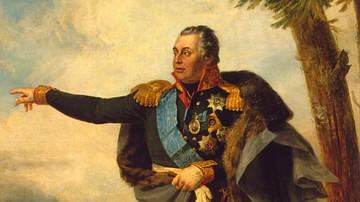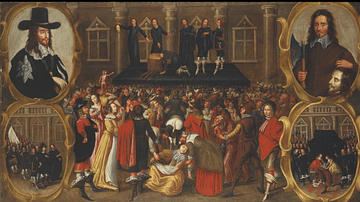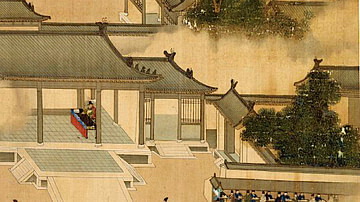Search
Search Results

Definition
War of the Fourth Coalition
The War of the Fourth Coalition (October 1806 to June 1807) was a major conflict during the Napoleonic Wars (1803-1815). The Fourth Coalition consisted of Russia, Prussia, Saxony, Sweden, and the United Kingdom, against the First French Empire...

Article
The Propaganda of Octavian and Mark Antony's Civil War
Propaganda played an important role in Octavian (l. 63 BCE - 14 CE) and Mark Antony's (l. 83 – 30 BCE) civil war, and once victorious at the Battle of Actium (31 BCE), Octavian returned home to become the first Roman emperor. The decade preceding...

Article
Reforms of Catherine the Great
Catherine II of Russia (Catherine the Great) was the empress regent of Russia from 1762 to 1796. During the mid-18th century, Russia was still regarded as culturally behind compared to Western European countries. However, during her reign...

Definition
Civil Constitution of the Clergy
The Civil Constitution of the Clergy was a law passed in July 1790 during the French Revolution (1789-1799), which caused the immediate subordination of the Catholic Church in France to the French government. An attempt to modernize the Church...

Article
Mikhail Kutuzov & the Russian Military Enlightenment
The Military Enlightenment of the 18th century was a concerted effort across Europe to engage with the science of war. Embracing rationalism and professionalism, especially in military education, statesmen, philosophers, and educators explored...

Video
Russian Revolution & Civil War: Crash Course
World War I was very hard on the Russian Empire. So hard, in fact, that it led to the end of the Russian Empire. As the global conflict ground on, Tsar Nicholas II faced increasing unrest at home. Today we'll learn about the Revolutions of...

Definition
Treaty of Brest-Litovsk
The Treaty of Brest-Litovsk, signed on 3 March 1918, outlined the harsh conditions under which the crumbling Russian Empire withdrew from the First World War (1914-18). Negotiated by Vladimir Lenin (1870-1924), the leader of Soviet Russia...

Article
Causes of the English Civil Wars
The English Civil Wars (1642-1651) were caused by a monumental clash of ideas between King Charles I of England (r. 1625-1649) and his parliament. Arguments over the powers of the monarchy, finances, questions of religious practices and toleration...

Article
Consequences of the English Civil Wars
The impact and consequences of the English Civil Wars (1642-1651) were many and far-reaching. Charles I of England (r. 1625-1649) was executed, and the monarchy was abolished. Oliver Cromwell (1599-1658) then headed the Republic as the Lord...

Article
The Civil Service Examinations of Imperial China
The civil service examinations of Imperial China allowed the state to find the best candidates to staff the vast bureaucracy that governed China from the Han Dynasty onwards (206 BCE - 220 CE). The exams were a means for a young male of any...